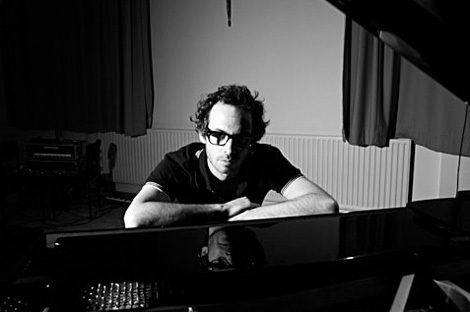
It’s pretty unusual for classical pianists to sign a six-album deal with non-classical record labels like Warner Bros – but James Rhodes is pretty unusual. He is one of Britain’s fastest-emerging musical talents, but is not churned out of an elite music college with years of classical training. His story, which he tells in this week’s magazine (read it here), starts in the psychiatric hospital where he was sent after being sectioned three years ago. Here’s how he starts his piece:
“So I’m sitting in what’s laughably called the Serenity Garden at a London psychiatric hospital that shall remain nameless, and one of the patients approaches me quietly and asks me what I do. Not what I’m locked up for (psych hospital etiquette forbids it), but what I do. She’s cute in an anorexic, self-harming kind of way, so I tell her that I play the piano. ‘What, like in a band?’ she asks, remarkably unslurred by meds. ‘No,’ I say. ‘Just me. I’m a concert pianist. Classical shit.’
‘Wow! Seriously? Man, that’s so cool! So I guess you started at like four years old and practised eight hours a day like for ever, and went to like Julliard or somewhere, huh? I bet you look awesome in your tux!’ (She happens to be American.) Our conversation was cut short when she stubbed her cigarette out on her arm. The nurses are peculiar like that.”
Now, Rhodes is actually a concert pianist – thanks to “luck, passion, sweat, flirting and some quite spectacular medication”. He wanted to work for a pianists’ agent, a guy called Franco Panozzo:
“We were in his beautiful house with a huge Yamaha grand. I mumbled something about playing a bit when I was a kid, amd he asked me to play for him. I whacked out a Chopin etude, more in hope than ambition. When I’d finished, I turned to see him staring at me open-mouthed. He told me that in 25 years of being an agent, he had never heard anyone who wasn’t a professional pianist play like that.”
Panozzo arranged for Rhodes to take lessons, and get him up to scratch.
When Rhodes says that music saved his life, you can tell he’s not exaggerating. He was, he says, “doing my level best to kill myself.” His odds on starting a career through the conventional channels were zero – but he put stuff out anyway. He has a website (here) and he Tweeted his gigs. It was a tweet from Stephen Fry that kick-started the interest in him. I myself found out about him due to a tweet from Nicky Campbell, and heard him play in the summer. His style is to chat to the audience, talk them through the pieces, and turn up for a drink in the bar afterwards. When we met, I asked him for lunch. He told me then how at no stage in his life, even the self-destructive phase, has he had much interest in non-classical music. He has no interest in crossover music, trying to jazz up the classics. The core classical repertoire, he says, is infinite and unimprovable. He also told me how too many talented musicians are sucked into the classical production line: trained intensively from childhood, sent to music college, their lives being one long succession of various contests judged by a musical old guard.
“I’d have been over the edge of Beachy Head or dangling from a rope had I gone to music college or won the Tchaikovsky competition. I came close enough to that, without the added pressure of remembering 40 concertos and 20 different concert programmes.”
At that concert, I bumped into my colleague Damian Thompson who has also interviewed James. A great piece, but I thought James should have the
chance to tell his own incredible story – which he does in this week’s magazine, the lead of our arts section. As he says:
“I’m the first to admit that I have a way to go, technically speaking. I used to torture myself with the thought that if I had worked for hours a day from the age of four,
I’d be able to tame Rachmaninov’s 3rd concerto, etc. But technical proficiency is not everything in music – a much-ignored truth, to which I owe my unlikely career.”
And can he play? CoffeeHousers can judge for themselves – his albums are on Spotify where you can very easily compare him to classical masters playing exactly the same pieces. (My fave: Track 10 on Razor Blades, Little Pills.) But what sums it up for me is this tiny clip of him using just his left hand. In an age where we import so much of our music and culture, here is an emerging British talent who has succeeded against incredible odds. And this, I hope, is just the start.
This week’s Spectator is available for £3.20 from newsagents, £2 posted direct, or on iPad – £5.99 for 30 days, or free to subscribers. To join our subscribers from £1 per issue, click here.







Comments